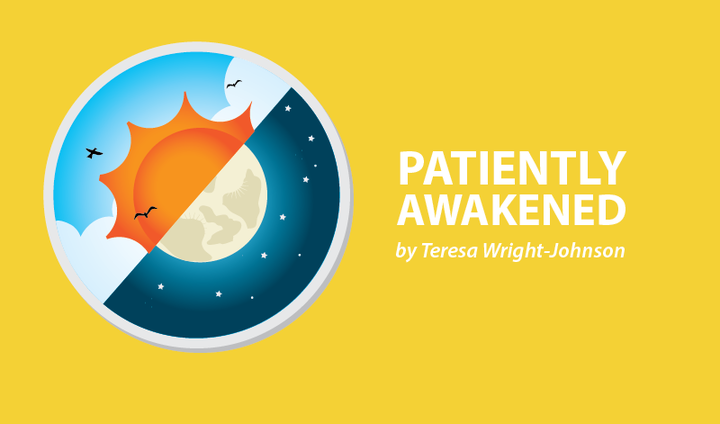I Choose to Address Chronic Illness on My Terms
Written by |


Who decides how we choose to chronicle our journey of illness? I have thought about this for the past few days. Many people believe that sharing the negative aspects of illness exacerbates fear and pessimism. The mindset is that if our words are inconsistent with hope and optimism, we should refrain from saying them. It has been said that discussing the negative aspects of illness has no benefit. I don’t employ this position.
Documenting illness in its true form has value. The highs, lows, and everything in between play a pivotal role in existing, inspiring, surviving, and thriving. Thus, the intent of this week’s column is to remind us that our illnesses are unique, and we ultimately decide how, when, and with whom to share our story.
I have read numerous accounts and had several discussions about chronic illness and how we speak about it. We are cautioned to carefully choose our words. I do agree that illness can be dark and isolating at times. I also know that there is power in authenticity. Sharing the harshness and devastation that can accompany illness allows others the freedom to do the same. I strongly disagree with the school of thought that attempts to censor an individual’s human experience and personal journey with illness. Yes, we hope for better days and we believe that better days will come. Still, it does not negate that there are tough days to get through. I refuse to let anyone dictate the way in which I tell my story.
When writing and speaking about illness, my intent is to embrace and empower. There is strength in saying today is a bad day. This does not signify that I have lost hope and faith, it simply means I am having a tangible human experience. We are not impenetrable pillars of strength. As I have written before, we have moments of fragility and discomfort. It is my belief that when one is charged with documenting illness and adversity, there must be a level of transparency. We must display our delicacy to embolden and comfort others. Humility and empathy are the tools necessary to reach the masses. Ironically, by sharing our vulnerabilities, others are made strong. We allow others to experience and express their pain, concerns, and occurrences without fear of judgment, guilt or shame.
I acknowledge that situations may exist in which we are emotionally compromised. There may be occasions when we must preserve our mental and spiritual health and choose not to share. In these instances, it may be detrimental to read, watch, or discuss the pitfalls of illness. There is no argument about doing what is best for you at any given moment. My way of dealing with sensory overload and protecting my spirit is refraining from social media, television, and people who may compromise my space at the time. I will never dictate how other individuals choose to express their emotions regarding illness.
Thus, please be mindful that chronic illness is difficult to manage. No one has the right to tell us what is appropriate to discuss and how we can document and speak about the things that ail us. The only right we have is whether we choose to listen, watch, or embrace. Allow people to live and share their truth. Nothing and no one can silence me. I have an obligation to share. My voice is required.
You are invited to subscribe to my website.
***
Note: Multiple Sclerosis News Today is strictly a news and information website about the disease. It does not provide medical advice, diagnosis, or treatment. This content is not intended to be a substitute for professional medical advice, diagnosis, or treatment. Always seek the advice of your physician or other qualified health provider with any questions you may have regarding a medical condition. Never disregard professional medical advice or delay in seeking it because of something you have read on this website. The opinions expressed in this column are not those of Multiple Sclerosis News Today, or its parent company, Bionews Services, and are intended to spark discussion about issues pertaining to multiple sclerosis.



Constance Chevalier
I fully agree with your article. I found it therapeutic to write about my journey after being diagnosed with PPMS and having to leave my teaching career. Thanks for sharing.
Teresa Wright-Johnson
Hi Constance,
Thanks for reading the column and sharing you thoughts. I appreciate you. Blessings to you. We will keep writing!
Rick
Teresa,
Quite the dissertation on the subject. Very eloquent, yet matter of fact. Unfortunately, when I express the negative side, or enhanced symptoms on any given day, I am subject to 'you should try this', or 'do this', or 'stop this', etc. So to keep the even keel necessary for me deal with SPMS, every day is a good day!
I agree with you wholeheartedly that expressing the negative part of the disease is a healthy part of dealing with issues that others (not all) don't understand. Tough to change mindsets.
Best of luck to you.
Rick
Teresa Wright-Johnson
Hi Rick,
Thanks so much for reading the column and for your response. I appreciate you. I have been told all the things I should do and try as well. I believe that most of us have. I take what I need and leave the rest. Most people are well intentioned. I wholeheartedly feel that it is important to share all of who we are and I will continue to try my best and live my truth. Best wishes to you and yours!
Janet
I agree with you wholeheartedly, you have an obligation to share, your voice is required and this column is the perfect forum to do so, please keep it up. To some degree I also agree with Rick, a positive mental attitude when we are dealing with this monster is essential. However, as his SPMS advances he will learn that not all days are 'good' days, he will require more help from others. When he expresses the negative side, or talks about his enhanced symptoms on any given day, he may want to listen to the ‘you should try this’, or ‘do this’, or ‘stop this’, etc because someone else may have a comment that actually helps, I know it has helped me. Consequently the more people that have knowledge of what comes with a 'bad' day the easier it is to ask for the help we need.
Teresa Wright-Johnson
Hi Janet,
Thanks so much for reading the column and for sharing your thoughts. I agree with many of the things you say. A positive mindset is definitely important, and for the most part, I try to maintain one. There are days and moments when I am compromised. I want others to know that it is okay not to be okay all of the time. That is important. Also, I have had suggestions made to me that actually helped in some form. I always say we have to take what we need and leave the rest. Asking for help is also essential. Thanks again and I wish you the best!